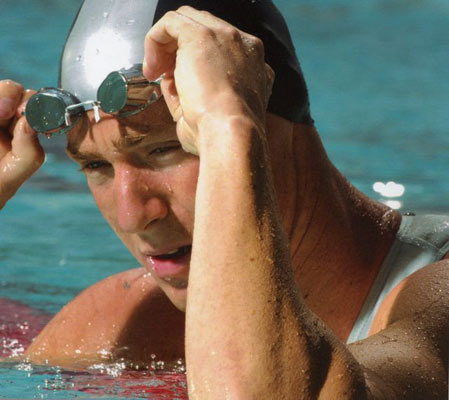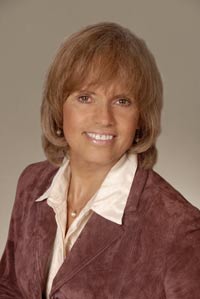Olympic Athletes Focus on the Positives as They Go for the Gold
Digging Deep

Jason Lezak‘s sensational swim that anchored the U.S. to victory in the 400-meter freestyle relay at Beijing on Sunday night was a powerful manifestation of “Olympic thinking,” as described by sports psychologist JoAnn Dahlkoetter.
“You strengthen your body through your mind,” says Dahlkoetter, who works with Olympic athletes. She ran marathons and bicycled across the country after graduating from Dos Pueblos High in 1971. With a PhD in psychology and post-doctoral training at the Stanford University Medical Center, she wrote the book, Your Performing Edge: The Total Mind-Body Program for Excellence in Sports, Business, and Life.
Dahlkoetter maintains that physical training is not enough to push an athlete to succeed in the pressure-packed Olympic Games. The most potent performance-enhancer, she says, is a rigorously trained mind. It’s healthy, too, unlike doping, which “creates problems with genetics.” Dahlkoetter removed photos of Marion Jones from early editions of her book after the sprinter’s drug abuse was revealed.

Aside from such obvious traits as positive imaging, desire, and enthusiasm, Dahlkoetter said an athlete should possess “the ability to handle adversity. When you lose, you can find out things about yourself and turn it into a gain. Top athletes embrace the stressful moments rather than shrink from them.”
Lezak, the oldest U.S. male Olympic swimmer at 32, arrived at Beijing through a long trail of ups and downs. His world-class body blossomed during his junior year at UCSB, but he was kicked off the swim team because of a bad attitude. Only after Lezak signed a contract and apologized to his teammates did Gaucho coach Gregg Wilson reinstate him. “I learned an important lesson, that I wasn’t bigger than the team,” said Lezak, who went on to become an NCAA All-American in 1997 and ’98.
Two years later, he was on the U.S. Olympic team in Sydney. He swam the third leg of the 400 freestyle relay final. The anchor leg was swum by Gary Hall Jr., who had earlier boasted what the Americans would do to the rival Australian team: “Smash them like guitars.” When Aussie star Ian Thorpe overtook Hall in the final strokes of the race, the full-throated roar of 17,500 spectators was the loudest din I’ve ever heard from a sporting crowd. It was the first time the U.S. men had ever failed to bring home the gold in that race.
Lezak was the American record holder in the 100 freestyle when he went to Athens in 2004, but he failed to advance out of the preliminary heat at the Olympics. The 400 freestyle relay was another disappointment, as the U.S. settled for a bronze medal. Lezak finished the Games on a high note, however, as he anchored the winning 400 medley relay team.
An Irvine resident who’s married to former Mexican Olympic swimmer Danielle DeAlva, Lezak trained without a coach for this year’s Olympics. It was a mark of his maturity, internal motivation, and discipline. Dahlkoetter says every athlete should do some self-coaching by eschewing negative thoughts (“I can’t do this”) and repeating “power words,” such as “calm, focus, effortless, smooth.”
It all came together for Lezak in 46.06 brilliant seconds on Sunday-the fastest a human being has ever swum 100 meters. He chased down the world record holder, Alain Bernard, who had unwisely stirred echoes of Sydney by promising that his French relay team would “smash” the Americans. Lezak called on his experience and swam close to Bernard’s lane. “People have gotten on my lane line and sucked off of me,” he said, “so I figured this is the one opportunity in my whole career to do that.” In the final 20 meters, while the Frenchman was tightening up in the lead, Lezak smoothly and resolutely slid past him to win by a fingernail and send his U.S. teammates, including superstar Michael Phelps, into a state of delirium.
In other Olympic venues last weekend, Santa Barbara athletes showed the power of mind and body. Todd Rogers and Phil Dalhausser bounced back smartly from being stunned in their first Olympic beach volleyball match by pounding a formidable Swiss team, and 21-year-old Kami Craig scored three goals to help the U.S. women’s water polo team hold off an inspired Chinese squad by a 12-11 score.



